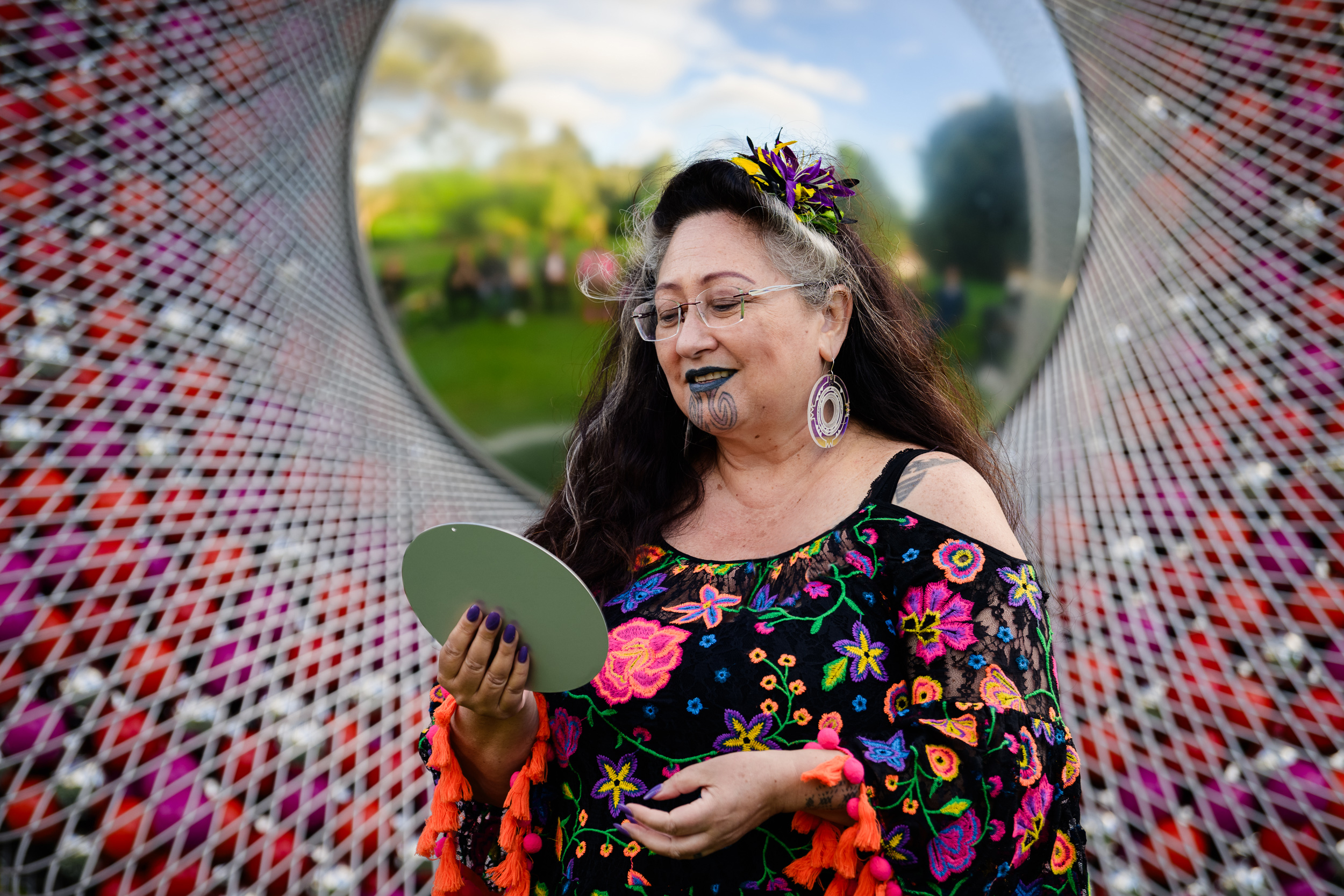Elizabeth Kerekere
Profile
Dr Elizabeth Kerekere is an artist, academic, activist and politician. A grass-roots activist for most of her life, she has been at the forefront of research, storytelling and community support for takatāpui in Aotearoa. Elizabeth’s doctoral thesis was the first major research in Aotearoa on takatāpui identity and she is founder of Tīwhanawhana, a takatāpui community group that welcomes people of diverse sexualities and gender identity.
Elizabeth is a visual artist with a bachelor’s degree in Māori visual arts from Eastern Institute of Technology. From 2020 to 2023 she was a Member of Parliament for the Green Party Aotearoa New Zealand.

Insight
Central to Elizabeth Kerekere’s Te Whare Takatāpui model is the inherent mana of wāhine, trans, intersex and non-binary people. Her words remind us that gender equality is not only about looking forward, we must also look back, learn and re-learn what has been lost through the gendered violence and puritanical mindsets of colonisers and missionaries.
Through Elizabeth’s research and scholarship we learn that pre-colonisation, Māori society valued all genders and was accepting of gender and sexual fluidity. Te Whare Takatāpui incorporates traditional Māori values, with the Whare being held up equally by Mana Wāhine, the authority held by women, Mana Tipua, the authority held by trans, intersex and non-binary people and Mana Tāne, the authority held by men.
What Elizabeth makes clear is that male-centred concepts about gender roles, sexuality and relationships are not inherent to Māori culture; these are patriarchal ideas imposed through colonisation.
Te Reo Glossary
Te Reo Glossary
ākonga
student, pupil
alofa
love, affection (Cook Islands Māori language)
Aotearoa
New Zealand
aroha
love, affection
haere rā
goodbye, farewell
hapū
subtribe, part of a kinship group
ira tangata
term used for intersex in a Māori context
irawhiti
term used for transgender in a Māori context
Itāria
Italy
iwi
extended kinship group descended from a common ancestor and associated with a distinct territory in Aotearoa
kairangahau
researcher
kaitiaki
guardian
kaitiakitanga
guardianship, stewardship
kia kaha ngā wāhine toa
be strong woman warriors
kia ora
hello, greetings
kia orana
hello, greetings (Cook Islands Māori language)
kōrero
conversation, discussion
kuia
female elder
mahi
work
māmā
mother, mum
mana
status, prestige, authority,
Māngere
a major suburb in South Auckland, New Zealand
Māori
Indigenous people of Aotearoa New Zealand
mauri
life force, life principle
moana
ocean, sea
Ōtautahi
Christchurch, city in South Island, New Zealand
Ōtepoti
Dunedin, city in South Island, New Zealand
pākeha
New Zealander of European/foreign descent
peka
branch (of a tree, river, organisation)
Pōneke
Wellington, Capital of New Zealand
rangatahi
youth, young people
takatāpui
queer, gay, rainbow community
Tāmaki Makaurau
Auckland, city in North Island, New Zealand
tapu
sacred, prohibited
tautoko
to support, advocate
Te Kāhui Tika Tangata
Human Rights Commission, New Zealand
Te Kaunihera Wahine o Aotearoa
National Council of Women of New Zealand
Te Kotahitanga
Autonomous Māori Parliament from 1892 to 1902
Te Moana-Nui-ā-Kiwa
the Pacific Ocean
te reo
the Māori language
Te Ropu Wahine Maori Toko i te Ora
Māori Women’s Welfare League
Te Wāhi Wāhine o Tāmaki Makaurau
Auckland Women’s Centre
tikanga
protocol, correct procedure
wāhine
woman, women
wāhine kaha
strong woman/women
waiata
song, chant
waiata taitoko
song of support usually sung after a speech
wairua
spirit, soul
whakapapa
genealogy, lineage
whānau
family, extended family group
whare
house, building